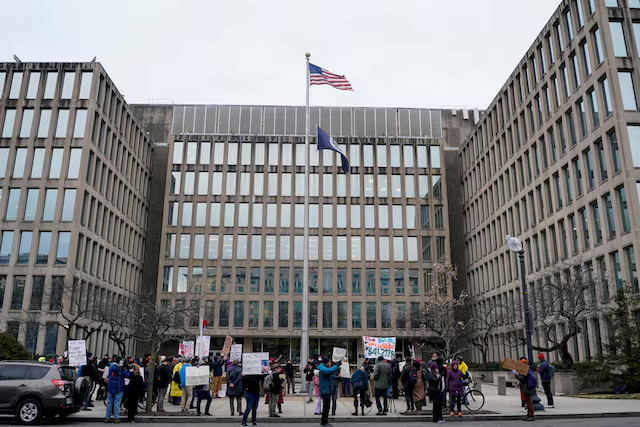The Role of the Administrative Procedure Act in Trump’s Legal Challenges

Lawsuits challenging the policies of President Donald Trump continue to raise significant constitutional questions, especially regarding his aggressive use of executive power. Central to these challenges is an often overlooked federal law called the Administrative Procedure Act (APA), a 1946 statute that requires the government to follow correct procedures when making policy changes.
While the challenges to Trump’s controversial actions, such as ending birthright citizenship and dismantling federal agencies, involve complex constitutional issues, they also claim that his administration failed to comply with the APA. The law stipulates that any changes in government policies or actions must be explained thoroughly, especially if they involve a significant shift.
During his first term, Trump’s administration faced legal setbacks based on the APA. In some high-profile cases, such as efforts to add a citizenship question to the census and the push to end the DACA program, the courts found that Trump’s actions were “arbitrary and capricious.” This raised the possibility that similar issues could arise in his second term.
The APA allows courts to overturn federal agency actions that fail to follow the correct procedure, including when policies are implemented without proper reasoning or consideration. Judges have consistently blocked or delayed several Trump administration plans, including freezes on federal funding and drastic staffing cuts. While these rulings are often temporary and may lack detailed legal reasoning, they highlight the significant role of the APA in legal challenges.
In fact, one of Trump’s early losses in his second term involved an Office of Management and Budget memo that ordered across-the-board funding freezes. The government was forced to rescind the memo after a claim was brought under the APA, though litigation continues.
A lawyer involved in one of the lawsuits explained, “The Trump administration is moving too quickly and without enough reasoning behind their actions, trying to disrupt as much as possible. These actions are inherently arbitrary and capricious under the APA.”
One notable example cited in legal challenges is Trump’s push to reduce funding for biomedical research. A coalition of states argued that the administration’s actions violated the APA because it failed to provide a proper explanation for the change and disregarded previous findings that supported current funding levels. A judge ruled to block the policy.
Additionally, a recent case related to Trump’s removal of health care data from federal websites cited the APA, with a judge finding that the government had likely violated the law. Similarly, workers at the U.S. Agency for International Development (USAID) filed a lawsuit challenging mass staff furloughs, claiming the dissolution of USAID violated the APA.
Trump’s administration is not the only one to be challenged under the APA. Even under President Biden, the law has been invoked to strike down policies, including an immigration enforcement measure. In that case, the judge ruled that the government’s failure to provide proper reasoning rendered the policy “arbitrary and capricious.”
Despite ongoing legal battles, Trump’s allies, including billionaire Elon Musk, have criticized judges for ruling against the administration. White House press secretary Karoline Leavitt called these legal actions “weaponization of justice against President Trump” but affirmed that the administration would continue to fight the battles in court.
The APA’s role in these legal challenges underscores the importance of transparency and reasoned decision-making in government actions, ensuring that significant policy changes are properly explained and follow the law.
For a refreshingly cool experience, check out the Raz Vape DC25000 in Raz Vape Flavors such as Raz DC25000 Black & Blue Lime for a smooth, satisfying hit.




